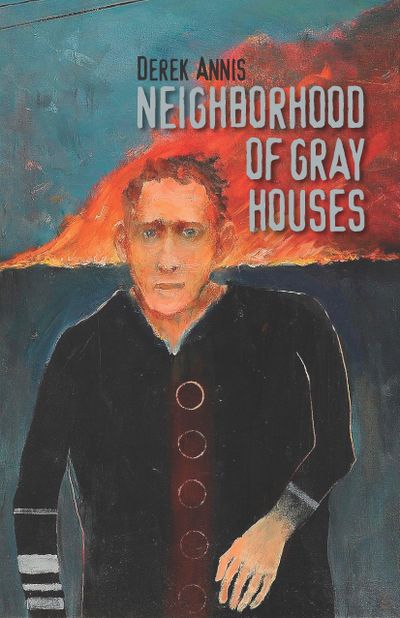Poet Derek Annis’ new work largely inspired by his troubled youth

Many writers can confidently say their experiments in authorship began early, often in childhood, but for local poet Derek Annis, that journey began accidentally and much later.
“I didn’t start writing poetry until I was 25,” Annis said. After dropping out of high school almost immediately, Annis spent the majority of his adolescent and early adult life in Spokane “struggling with substance abuse and trying to scrape together enough money each day to eat. I spent about half of my nights sleeping outdoors and the other half sleeping on friends’ couches or squatting in abandoned buildings.”
At 25, Annis was involved in an altercation with a police officer. The officer alleged that Annis assaulted him during questioning. Annis denies this, saying instead the charge was a cover for the officer’s own excessive use of force. During this time, “for the sole purpose of trying to look good in court,” Annis started working to earn his GED, taking several classes at Spokane Falls Community College. His English classes, more than any, would prove unexpectedly instrumental to his recovery.
“When I walked into that classroom, I believed I was stupid,” Annis said. “I thought I would never be able to succeed in an academic setting.” But, with the assistance of an understanding teacher, his abject self-image began to change dramatically.
“Laura Read was kind and encouraging and very passionate about poetry,” he said. With her help, he “found that poetry could deepen my understanding of myself and the people and the world around me. Poetry gave me a way to explore and understand my own life experiences; it gave me a way to deeply connect and empathize with others, even people I’ve never met, through their poems.”
By the end of his first quarter, Annis was a poet. “I left that classroom with goals for my writing and education and the confidence and drive necessary to pursue them,” he said. Annis went on to earn an MFA at Eastern Washington University and later worked as a reader and editor for Willow Springs magazine, a nationally distributed literary journal. He now manages Lynx House Press’ “Blue Lynx Prize for Poetry” contest.
Although he learned how to handle the pain of rejection during his time at Willow Springs, he admits he still often struggles with fear in his writing. “I’m afraid that what I’m writing won’t be good, that people will think it’s stupid, that I’m a fraud, that it’s a waste of time because who would want to read this anyway?” he said. “Letting go of all of that, focusing on letting the words make their way onto the page, is really hard.”
Despite all of these insecurities, Annis hasn’t stopped writing. And while he says the self-doubt of his early life will never disappear entirely, the “surprise and discovery” of his writing process keeps him devoted to his work.
“When I sit down to write, I try not to have any particular idea in mind,” Annis said. Rather than forcing his work along a predetermined line, Annis begins with an inspiring image and, ideally, follows that image toward whatever conclusion manifests. “This results in greater surprise, both for myself and the reader, and I end up learning something in the process.”
In March, Annis released his debut collection of poems, “Neighborhood of Gray Houses,” inspired largely by his troubled youth. Although some of the poems take on hints of surrealism, little else separates Annis from his protagonist.
“Neighborhood of Gray Houses” chronicles a single speaker’s experiences with parental abandonment, post-traumatic stress disorder, depression, homelessness, drug addiction and suicidal ideation. As his world falls apart, the poems become more surreal until, in the final section, the speaker’s life takes a dramatic turn for the better with the birth of his first daughter. Here, the poems and speaker find more solid footing, ending in “relative contentedness and cautious optimism.”
To aspiring authors, Annis offers the following advice: “Write now and worry about whether it’s good later. Like everyone else who writes, you will write a mountain of unusable garbage, but as long as you stick with it, you will also write some really great stuff. Also, read a lot and attend literary events. Your connections with other writers will keep you going and will give you the opportunity to get honest feedback on your work.”